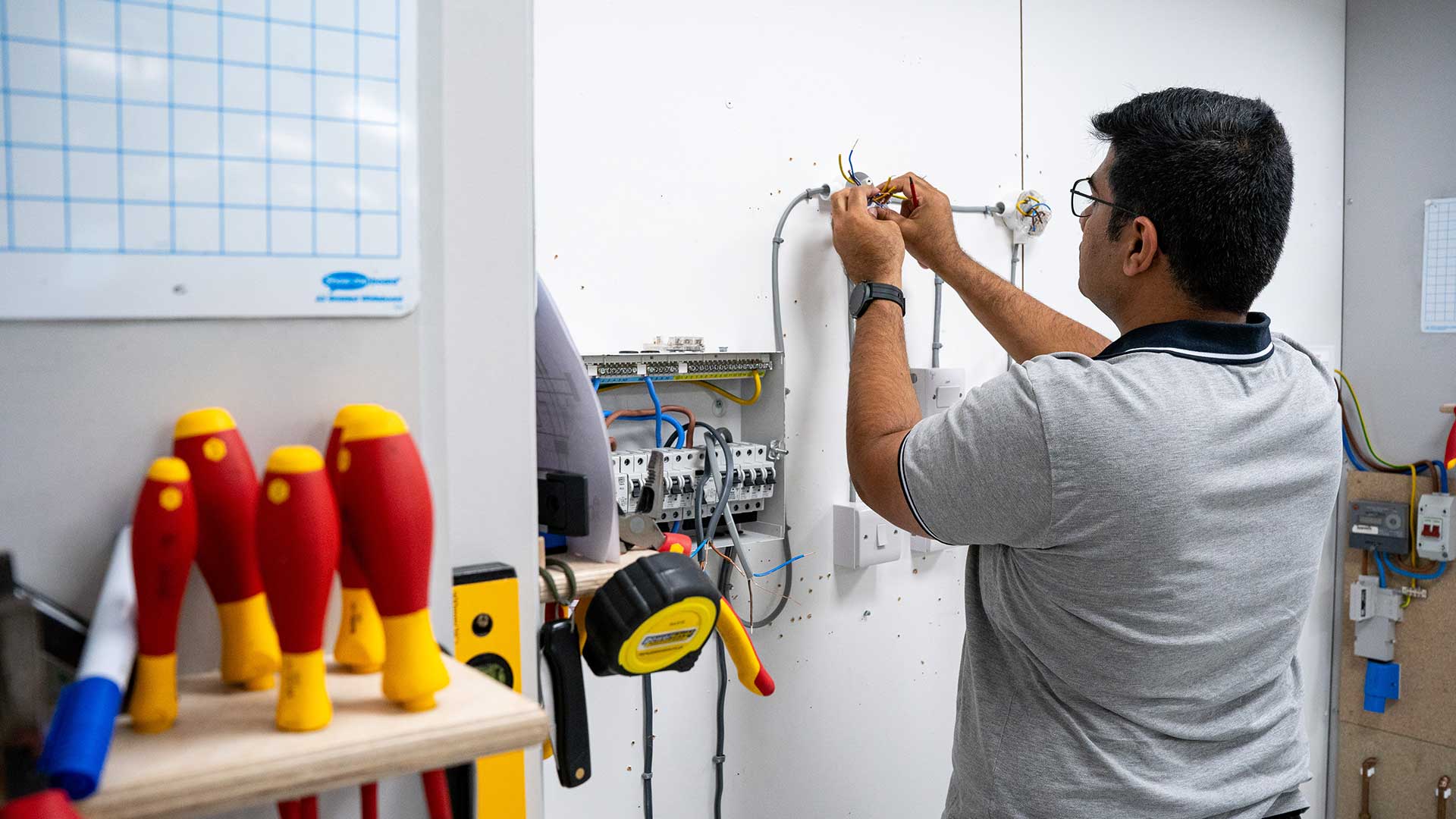Solid-state batteries are heralded as the next frontier in energy storage technology, promising to transform industries, enhance sustainability, and revolutionise daily life. Unlike traditional lithium-ion batteries, solid-state batteries replace the flammable liquid electrolyte with a solid electrolyte, offering numerous advantages such as improved safety, higher energy density, faster charging times, and longer lifespan. This article from Tradeskills4u, the leading electrician training school in the UK, explores the ground-breaking potential of solid-state batteries and their impact on various sectors, from transportation and electronics to renewable energy storage and beyond.
The Evolution of Energy Storage
The evolution of energy storage has been marked by significant advancements driven by technological innovation and increasing demand for sustainable solutions. Historically, energy storage methods have ranged from simple mechanical systems like flywheels and pumped hydro storage to chemical batteries such as lead-acid and nickel-cadmium.
However, with the rise of renewable energy sources like solar and wind power, the need for efficient and scalable energy storage solutions has become critical. This has led to the development of sophisticated battery technologies, including lithium-ion batteries, which have become an everyday essential in portable electronics and electric vehicles. More recently, the emergence of solid-state batteries has promised even greater energy density, safety, and longevity, further shaping the landscape of energy storage and paving the way for a cleaner and more sustainable future.
The Limitations of Lithium-Ion Batteries
Despite their widespread adoption, lithium-ion batteries are not without limitations. One significant drawback is their propensity for thermal runaway, a phenomenon where the battery’s temperature rapidly increases, leading to cell rupture, fire, or explosion. This poses safety concerns, especially in applications where large battery packs are involved, such as electric vehicles and grid-scale energy storage systems.
Moreover, lithium-ion batteries have relatively low energy density compared to other energy storage technologies, limiting the amount of energy that can be stored per unit of weight or volume. This constraint affects the range and duration of devices powered by lithium-ion batteries, such as smartphones, laptops, and electric vehicles.
Additionally, lithium-ion batteries degrade over time due to chemical reactions within the cells, resulting in reduced capacity and performance. This degradation is exacerbated by factors like high temperatures and frequent charging cycles, further limiting the lifespan of lithium-ion batteries.
As such, there is a pressing need for alternative energy storage solutions that can address these limitations and propel the transition towards a more sustainable energy future.
Advantages of Solid-State Batteries
So, why is solid-state simply better?
- Enhanced safety: Elimination of flammable electrolytes reduces the risk of thermal runaway and battery fires.
- Higher energy density: Solid-state batteries offer greater energy storage capacity, enabling longer battery life and increased range for electric vehicles.
- Faster charging: Improved conductivity within solid-state batteries allows for rapid charging, addressing one of the main drawbacks of lithium-ion batteries.
- Longer lifespan: Reduced degradation and improved stability contribute to extended battery durability, reducing the need for frequent replacements.
Transforming Transportation
The impact of this technology is far-reaching, even changing the transportation industry!
- Electric vehicles (EVs): Solid-state batteries have the potential to revolutionise the automotive industry by enabling EVs with longer range, faster charging, and enhanced safety.
- Aviation and aerospace: The lightweight and high-energy density of solid-state batteries make them ideal for powering aircraft and satellites, paving the way for cleaner and more efficient air travel.
Empowering Electronics
Solid-state batteries are changing consumer electronics for the better.
- Consumer electronics: Solid-state batteries offer slimmer profiles and improved performance for smartphones, laptops, and wearable devices, enhancing user experience and convenience.
- Internet of Things (IoT): The compact size and long-lasting power of solid-state batteries facilitate the proliferation of IoT devices, enabling seamless connectivity and smart functionalities.
Revolutionising Renewable Energy Storage
This technology is especially important as governments and individuals push for renewable energy adoption:
- Grid-scale energy storage: Solid-state batteries play a crucial role in storing renewable energy from sources like solar and wind power, enabling grid stability and facilitating the transition to a sustainable energy future.
- Home energy storage: Residential applications of solid-state batteries empower homeowners to store excess energy generated from solar panels, reducing reliance on the grid and lowering electricity costs.
Challenges and Future Outlook
Despite being a superior technology, solid state batteries and adoption of this technology isn’t without its challenges.
- Manufacturing scalability: Scaling up production of solid-state batteries to meet global demand remains a significant challenge, requiring advancements in manufacturing processes and materials.
- Cost reduction: Despite their potential benefits, solid-state batteries currently come at a higher cost compared to lithium-ion batteries. Continued research and development efforts are needed to drive down costs and improve affordability.
- Regulatory approval: Ensuring the safety and reliability of solid-state batteries through rigorous testing and regulatory approval is essential for widespread adoption across industries.
Solid-state batteries represent a paradigm shift in energy storage technology, offering unprecedented opportunities to address pressing challenges in transportation, electronics, and renewable energy. As research and innovation propel the commercialisation of solid-state batteries forward, their transformative impact on society is poised to usher in a new era of sustainability, efficiency, and connectivity. Embracing this revolutionary technology is not only essential for meeting the demands of a rapidly evolving world but also for shaping a cleaner, greener future for generations to come.
Get on track with electrician apprenticeships and training courses today!
Tradeskills4u offers comprehensive and industry-approved apprenticeships to help you qualify as an electrician in the UK. Our courses cover a broad spectrum of electrical work, spanning domestic installations to commercial and industrial projects. Delivered through a blend of hands-on apprenticeships and coursework at our cutting-edge facilities, our training ensures you’re equipped with the skills needed to succeed in the field.
Looking to expand your expertise? Check out our Green Electrical Upskill Bootcamp Package, where you can specialise in EV charging infrastructure and solar PV courses, becoming a specialist in green energy. As the UK’s leading provider of electrical apprenticeships, we boast a remarkable +90% pass rate and conveniently located facilities in Gatwick, Coventry, Leeds, Warrington, and Central London.
Ready to spark your career? Visit our website or reach out to us directly at 0800 8564448 to learn more about our electrician courses and kickstart your journey in the electrical industry.



























